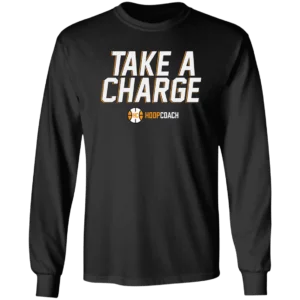 The sky has fallen; a 16 Seed has beaten a 1 Seed on the 136th try and convincingly-by 20 points.
The sky has fallen; a 16 Seed has beaten a 1 Seed on the 136th try and convincingly-by 20 points.
The second-guessing critics are out in force slamming Coach Tony Bennett and his “slow”, “boring” 351st (out of 351 D1 teams) pace of play of 62.1 possessions per 40 minutes.
This, after a 31-2 record coming into the game and having won both the ACC regular season (by 4 games) and tournament championships. That ACC, by the way, counts Duke, North Carolina, Notre Dame, Clemson, N.C. State, Miami, Va. Tech, Florida St. and Syracuse as members, among others.
So, before Coach Bennett gets totally hung out to dry, let’s analyze why a team that led the nation in points allowed and Assist/TO ratio and was 3rd in Defensive FG%, 11th in Defensive 3pt FG%, 6th in fewest fouls and 8th in scoring margin could lose by 20 to a team whose RPI was somewhere near 111th in the country and had lost at Albany 83-39 and at home vs. Vermont 81-53?
- The simplest explanation is UMBC made shots and Virginia didn’t. Whenever someone from the press asks a coach keys to victory and the coach answers “we have to make shots”, there are those who roll their eyes and think “cliché”. The truth of the matter is no matter the pace of play and or style of offense, one has to make shots. UMBC was 26-48 (54%) from the floor and 12-24 (50%) from the arc. UVA shot 41% and 18%.
- As for pace of play being the villain, teams with similar paces of play were still playing on Saturday and Sunday with opportunities to advance to the Sweet Sixteen (Michigan, Loyola, Cincinnati, Clemson and Syracuse). No doubt, these coaches were being praised for their methods.
- Not an excuse but a factor, freshman De’Andre Hunter, UVA’s ACC 6th man of the year was unavailable due to injury.
- UMBC’s 12 treys were notched by 5 different players who each made 2 or 3. The obvious conclusion is the court was spread and spaced to the max. Any team would have had great difficulty defending the breadth of the floor that night. It’s one thing when a defense has to locate only one or two or even three shooters. The D can load up or shade on those players and cheat on the others, 5 shooters reduces loading up and shading.
- Because the floor was spread to the max, it opened up seldom seen seams in the Cavaliers’ defense and several UMBC players, but particularly Jairus Lyles (28 points), got into the lane time after time for good opportunities for themselves or pitches back out for good triple looks. UMBC had the best of both worlds. The pack line defense that Virginia played the previous 33 games, which prevented lane penetration and good trey looks with great closeouts, was in uncharted territory. NO OTHER opponent had made them as vulnerable. It started with the multi-player, spread floor-even and especially in the first half 21-21 tie. One could see the final result brewing even then.
- The four best players on the floor that night were all Retrievers. Lyles, K.J. Maura, Arkel Lamar and Joe Sherburne all outplayed every single Cavalier player.
- Coach Ryan Odom’s coaching acumen shouldn’t surprise anyone-Interim Head Coach at Charlotte. Assistant Coach at Virginia Tech and son of Dave Odom (former Head Coach at East Carolina, Wake Forest and South Carolina). Coach Odom has been around good basketball his whole life. He, too, outperformed his counterpart.
- Yes, tempo did play a role. As the clock ticked and possessions were numbered, Virginia didn’t do enough with quick hitters at the offensive end and pressure at the defensive end- a bad recipe for comebacks.
- Almost overlooked in the proceedings UMBC outrebounded UVA 33-22. That stat alone doesn’t win many games.
- Neutral site NCAA venues love the underdog and adopt them. By early 2nd half, UVA was playing a road game.
- As the score mounted, the roles reversed-UMBC played with increasing confidence and looseness. UVA played alternately scared and uncharacteristically overbold with low percentage plays and shots.
- The result was that the Retrievers were the best team on the floor that night and that’s not a cliché.



Great analysis coach lots of top notch info for thought. I am coming up on a semifinal championship game with one of my house league teams. Against a team we have beaten twice this year. Based on how intently and copiously the opposing coach took notes scouting my last game. I am wondering if I should do something different or better yet what he might do differently? This article gives me a plenty to think about on both sides of this question! Best regards…..
Excellent analysis, plenty of good food for thought. My team is heading into a semifinal championship game against a team that we have beaten twice this season. If we win we get to play in the final against the only team that has beaten us, there is a lot at stake. The opposing teams coach while scouting our last game was taking copious notes. I have been thinking if we should approach the semifinal game differently. More importantly what if any will be the opposing coach’s new game plan? Both directly and indirectly the article has given me plenty of information to help with getting a handle both of these question’s. Best regards coach!
Good Luck, Coach! Generally, when teams try to alter their game plan drastically in a short period of time, it’s a gimmick and they can’t sustain it very long. If your players focus on being ready to play and their jobs, they’ll be prepared for anything.
Thanks Coach, we decided against anything new and practiced what “got us to this point”. We focused on our man to man defense and shutting down their three most productive players. It worked we won a close one in overtime. Now we are on our way to the league championship this upcoming weekend, against the team that beat us earlier in the season. Which of course is exactly what we want.